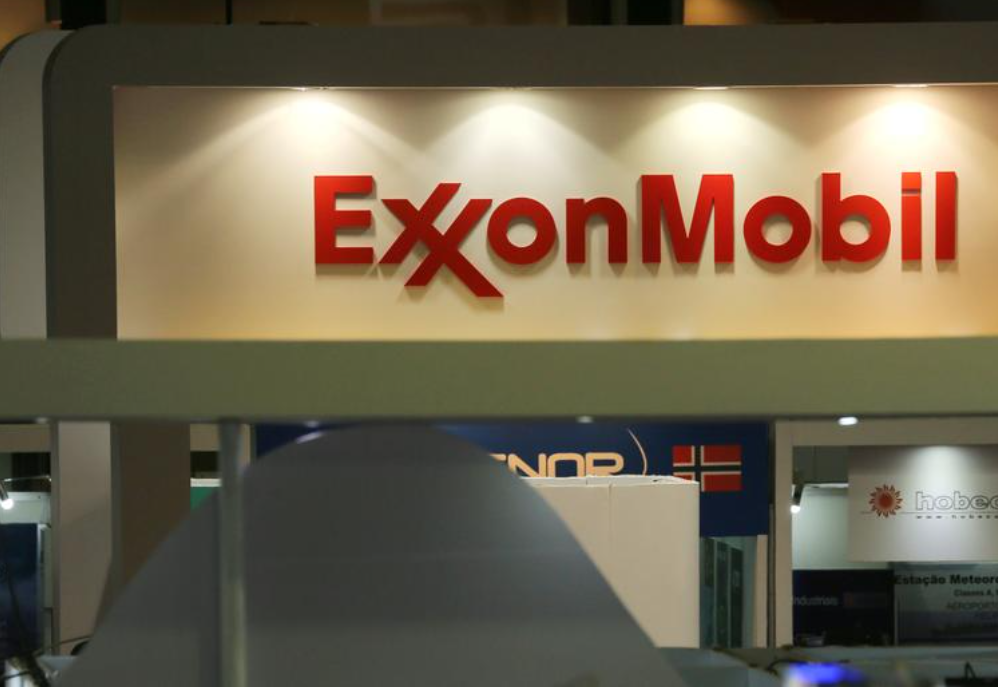Exxon to invest $3 B on low-carbon solutions
February 02, 2021

ExxonMobil has created a new business to commercialize its extensive low-carbon technology portfolio. The new business, ExxonMobil Low Carbon Solutions, will initially focus on carbon capture and storage, one of the critical technologies required to achieve net zero emissions and the climate goals outlined in the Paris Agreement.
ExxonMobil Low Carbon Solutions is advancing plans for more than 20 new carbon capture and storage opportunities around the world to enable large-scale emission reductions. ExxonMobil plans to invest $3 B on lower emission energy solutions through 2025. The business will be led by Exxon Mobile Corp.'s Vice President Joe Blommaert, who has more than 30 years of experience in the industry with leadership roles in technology advancement, product marketing, and operations.
CCS is the process of capturing CO2 that would otherwise be released into the atmosphere from industrial activity, and injecting it into deep geologic formations for safe, secure and permanent storage. The United Nations Intergovernmental Panel on Climate Change and the International Energy Agency agree that CCS is one of the most important low-carbon technologies required to achieve societal climate goals at the lowest cost. CCS is also one of the only technologies that could enable some industry sectors to decarbonize, including the refining, chemicals, cement and steel sectors.
The business will seek to develop partnerships and collaborations on a wide range of technologies, and be responsible for marketing of emission-reduction credits created through the business’s sequestration projects.
New CCS projects and partnerships under evaluation include:
- U.S. Gulf Coast – ExxonMobil is assessing multiple CCS projects along the U.S. Gulf Coast that have the potential to collect millions of tonnes of CO2 from industrial sources for storage in onshore and offshore geologic formations. Included in these projects is a CCS hub concept in Southeast Texas.
- Wyoming, USA – ExxonMobil has progressed permitting for the expansion of its La Barge CCS facilities, which could enable an additional one MMt of CO2 per year to be captured. Existing facilities currently capture approximately 7 MMt/year, which is the largest amount of CO2 captured by any industrial facility in the world.
- Netherlands – ExxonMobil has executed a joint development agreement to advance its interest in the Port of Rotterdam CO2 Transportation Hub and Offshore Storage project, known as Porthos. The Porthos project aims to collect CO2 emissions from industrial sources and transport them by pipeline to depleted North Sea offshore gas fields. Porthos and its potential customers have applied for EU and national support mechanisms. ExxonMobil also participates in the H-Vision study into large-scale production of low-carbon hydrogen in Rotterdam.
- Belgium – ExxonMobil is participating in the multi-stakeholder CCS project at the Port of Antwerp, Europe’s largest integrated energy and chemicals cluster. The project, which would collect CO2 emissions from industrial sources for storage, recently applied for support from the European Union.
- Scotland – Through its joint venture in the SEGAL system in Northeast Scotland, ExxonMobil is progressing discussions to support the Acorn project, which will collect CO2 from the St. Fergus gas processing complex for transport and storage in offshore gas reservoirs.
- Singapore – ExxonMobil is planning a CCS hub concept to capture, transport and permanently store CO2 generated by industrial activity in the Asia-Pacific region. The project concept is based on a plan to capture CO2 emissions from Singapore manufacturing facilities for storage in the region.
- Qatar - ExxonMobil is a partner in several existing joint ventures with Qatar Petroleum that operate a CCS project with an annual capacity of 2.1 MMt at Ras Laffan. ExxonMobil is evaluating opportunities to add additional capture capacity in the region.
The new projects will complement ExxonMobil’s current carbon capture capacity in the United States, Australia and Qatar, which totals about 9 MMt/year, the equivalent of planting 150 million trees every year.
ExxonMobil is collaborating with multiple partners across industry, academia and government to advance carbon capture technologies to reduce costs and enhance scalability. This includes the company’s work with FuelCell Energy to advance carbonate fuel cell technology to more efficiently capture CO2 from industrial facilities, and Global Thermostat, a collaboration to advance efforts to capture CO2 directly from the air.
